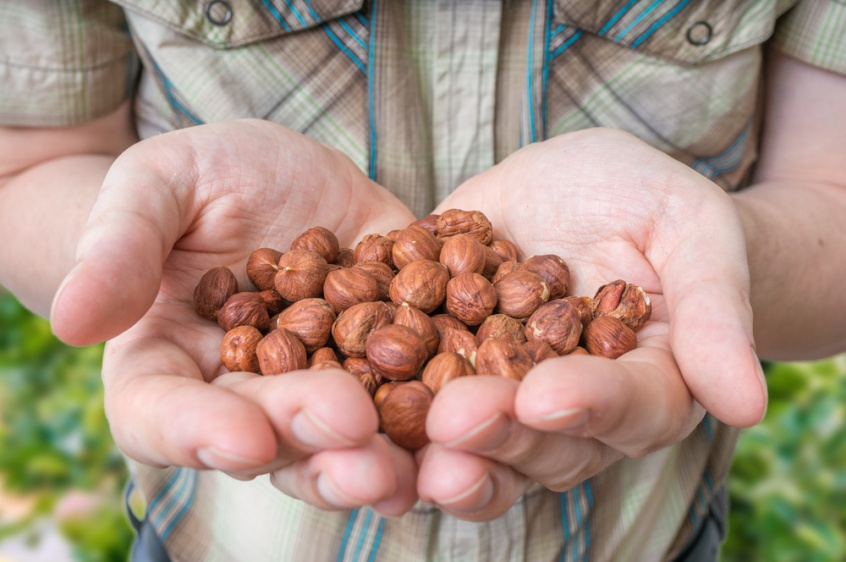
EBRD and EU help modernise Georgian businesses
Georgia is home to more than 60,000 hazelnut growers. Its traditional cuisine abounds with recipes featuring the product, such as churchkhela, a popular nut and grape corner snack. For farmers and producers, bringing their produce to the table of Estonians, Danes and the Spanish is vital to continue to grow, create jobs and spur further economic development.
The European Union is the world’s largest trading block. Georgia signed a trade agreement with the EU offering access to the single market, which provides businesses in the country exactly such trading opportunities. It also means that they have to meet EU standards for the goods and services they offer. This is in their interests too, as it makes them more competitive in their own and other markets.
But which parts of a business are affected by the relevant EU directives? How can Georgian enterprises meet the necessary standards to export to the EU? And how can they finance much-needed improvements?
Together with the European Union, we are helping business in Georgia, Moldova and Ukraine take full advantage of unrestricted access to the world’s largest market.
From hazelnuts to IT services
Several workshops on the EU4Business-EBRD Credit Line provided Georgian entrepreneurs, including nut farmers, wine exporters and meat processors, with answers to these questions. They explained what is on offer, including finance from EBRD partner banks and EU grants for purchasing relevant equipment, modernising production and improving their services.
It is a unique combination that will be of interest to many hazelnut farmers, explains George Managadze, Deputy Head of the Association of Hazelnut Producers, who attended one of the workshops.
“The grant component provided by the EU under the credit line is important to our members, as the time-lag from the point when the investment is made – so when new trees are planted and irrigation systems installed – through to the first harvest is three to four years,” he said.
The Association of Hazelnut Producers works together with Ferrero to support farms and improve their production in Georgia. The chocolate and confectionery maker provides the small plants, while the Association works with farmers to train them and help them invest in modern irrigation systems, fertilising techniques and storage warehouses.
As in other sectors, producers need to meet the relevant standards to export to the EU. This applies to everything from irrigation for young plants to conditions in the storage warehouse, so as to ensure the final goods are of high enough quality to enter the European market.
“The technical assistance provided as part of the credit line will help us to shape a suitable investment plan for members who are part of this improvement programme. Even though each grower will apply for a loan individually, this assistance can help us design one technical standard, which will benefit all individual investors in our group,” Mr Managadze added.
Hazelnut farmers are of course only one example of entrepreneurs that can benefit from the new trade arrangements with the EU. It includes businesses from all economic sectors, for example, textile or furniture exporters, food processors, car part wholesalers, IT companies and those in the tourism industry.
Growth opportunities for businesses in Georgia, Moldova and Ukraine
The EBRD will provide up to €380 million in credit lines and trade finance through local partner banks to such businesses in Georgia, Moldova and Ukraine. All three countries signed Association Agreements with the EU that provide their businesses with EU market access.
The EBRD loans are supported by over €19 million of EU funds under the EU4Business Initiative. Thanks to EU funding, up to 15 per cent of each loan taken up by an SME to finance investments to comply with DCFTA standards can be converted into a grant.
In Moldova, Mobiasbanca became the first partner to offer loans in the country under the EU4Business-EBRD credit line in December 2016. This is expected to significantly boost the ability of Moldovan businesses to trade with the EU. It followed the start of the programme in Georgia a few months earlier.
Furthermore, the EBRD has also provided various companies with direct loans in the three countries and with advisory services to prepare them for the trade opportunities with the EU. Both programmes are also backed by EU funding under the EU4Business initiative.
The EBRD supports economic integration as a key element of well-functioning market economies, which will enable growth and job creation.
It is to the benefit of everyone – in Georgia, the EU and elsewhere – to have affordable high-quality goods on offer and develop strong sustainable economies across the globe.
Article by Volker Ahlemeyer
Check what support is available under EU4Business for Georgian SMEs
